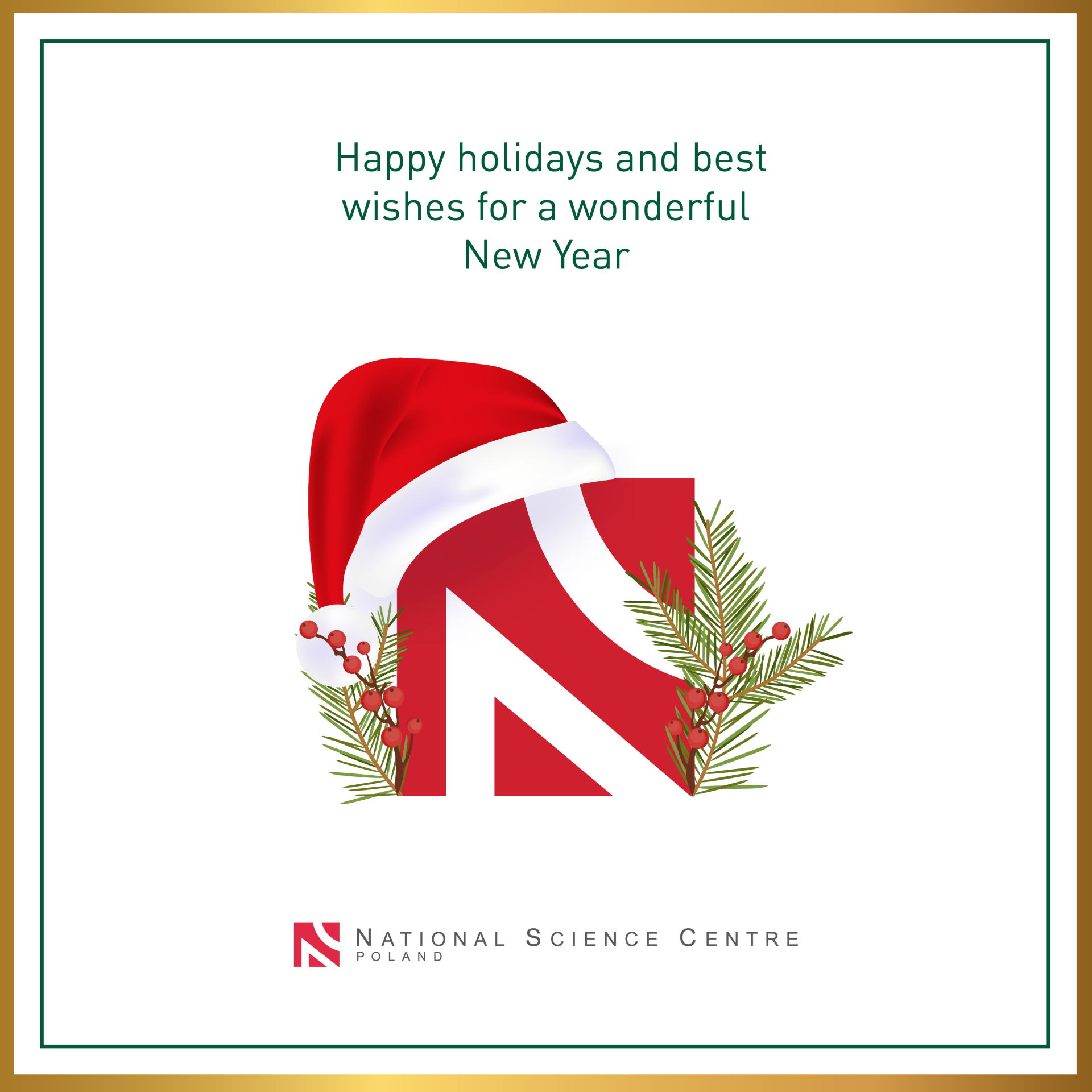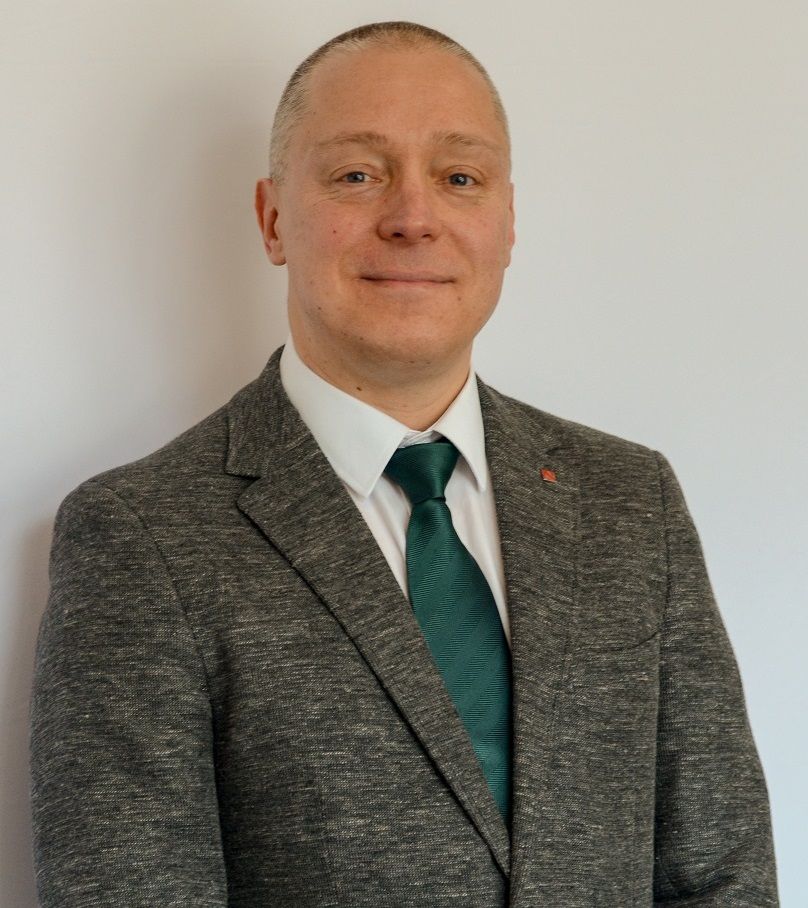This was a difficult year for the NCN and the grant system in Poland. The shaky political situation, our frozen budget, our struggle to defend the independence of the National Science Centre against the threat of reform and shutdown, and many months of waiting for the Minister of Education and Science to appoint the new NCN Director were but some of the things that claimed our attention in 2023.
But 2023 was also a year in which, against all odds, we continued to work, in adherence to our standards and the best international models, to enable Polish researchers to carry out ambitious research projects. It was also a year of resounding success for Polish scientists in prestigious international calls and one in which we provided even more support to war-ravaged Ukraine and to young researchers. Here is our 2023 in a nutshell.
JANUARY
We concluded the EN-UAC China Call (ERA-NET Urban Accessibility and Connectivity), organised by the JPI Urban Europe network in tandem with the Chinese NSFC. Two Polish teams won funding for projects focused on development in cities and urbanised areas.
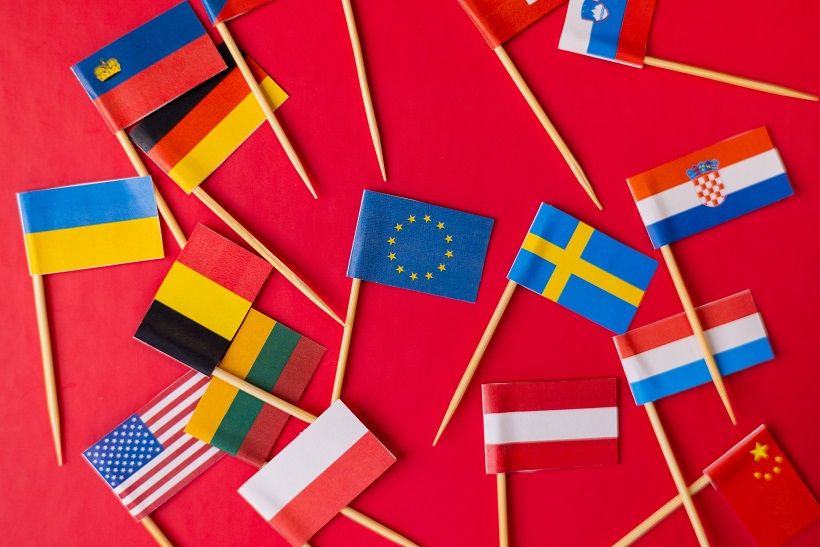 On our website, we published the next round of results for the Weave-UNISONO call based on the Lead Agency Procedure. The call accepts proposals on a rolling basis and is open to scientists from Austria, Belgium-Flanders, Czech Republic, Germany, Luxembourg, Slovenia, Switzerland and, of course, Poland, who can compete for grants to fund bilateral or trilateral research projects. This year, we published successive Weave results as soon as partner agencies issued their funding decisions. In the end, our ranking lists featured 22 international projects from all disciplines of science, with a total budget of nearly 24.1 million zlotys.
On our website, we published the next round of results for the Weave-UNISONO call based on the Lead Agency Procedure. The call accepts proposals on a rolling basis and is open to scientists from Austria, Belgium-Flanders, Czech Republic, Germany, Luxembourg, Slovenia, Switzerland and, of course, Poland, who can compete for grants to fund bilateral or trilateral research projects. This year, we published successive Weave results as soon as partner agencies issued their funding decisions. In the end, our ranking lists featured 22 international projects from all disciplines of science, with a total budget of nearly 24.1 million zlotys.
In January, the European Research Council published the results of its Proof of Concept (PoC) grants, awarded to pioneering projects that go beyond our current state of knowledge. One of these prestigious grants went to Prof. Magdalena Król from the Department of Biology of the Warsaw University of Life Sciences. In March, the ERC followed up with the results of more calls. Advanced Grants went to Prof. Andrzej Dziembowski from the International Institute of Molecular and Cell Biology in Warsaw and Prof. Daniel Gryko from the Institute of Organic Chemistry of the Polish Academy of Sciences, while two Starting Grants (StG) were awarded to Dr Agnieszka Brylak and Dr hab. Piotr Skowron from the University of Warsaw. In May, Prof. Dr hab. Katarzyna Marciniak from the University of Warsaw made history as the first ever Polish female humanities scholar to win a Proof of Concept grant. In September, the list of ERC Starting Grants holders grew to include Dr hab. inż. Maciej Trusiak from the Warsaw University of Technology and Dr inż. Łukasz Sterczewski from the Wrocław University of Technology. The last ERC call results for 2023 were announced in November, with four Polish researchers receiving Consolidator Grants: Prof. Ewa Szczurek, Prof. Szymon Toruńczyk, Prof. Paweł Caputa and Prof. Magdalena Wojcieszak from the University of Warsaw. Nearly all Polish scientists who won ERC grants in 2023 had previously led or worked on NCN-funded projects.
Thanks to our cooperation with international networks and partnerships, Polish researchers are now successfully working on many international research projects. More information on how this collaboration is progressing can be found, e.g. in the database of projects funded in the CHANSE Transformations: Social and Cultural Dynamics in the Digital Age call, published in January.
The beginning of the year also marked the debut of the new NCN Council, appointed in December 2022. In his first interview as the new President of the NCN Council, Prof. Robert Hasterok talked about its new members and the challenges the body faced in the first months of its term.
FEBRUARY
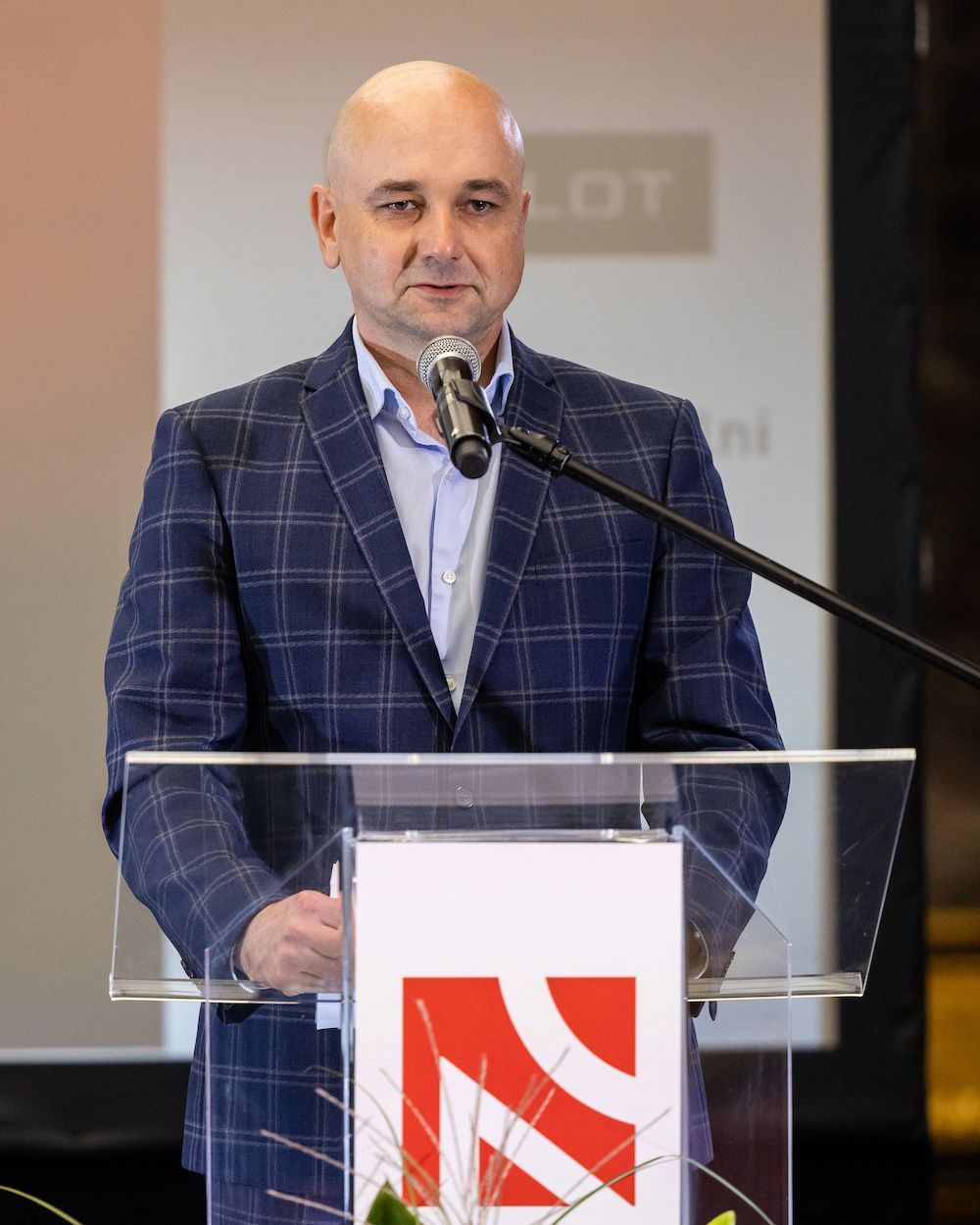 prof. Krzysztof Jóźwiak
Prof. Krzysztof Jóźwiak from the Medical University of Lublin was nominated as the new NCN Director. Following his election, the NCN Council passed a resolution to submit his candidacy to the Ministry of Education and Science.
prof. Krzysztof Jóźwiak
Prof. Krzysztof Jóźwiak from the Medical University of Lublin was nominated as the new NCN Director. Following his election, the NCN Council passed a resolution to submit his candidacy to the Ministry of Education and Science.
In February, we awarded 64 grants for advanced researchers under MAESTRO and for new research teams under SONATA BIS. Winners will work on problems such as, e.g. language deficits in neurodevelopmental disorders in children, computer science theory, theory of automata and logic, metamemory processes, and the molecular mechanism behind the impact of light on the progression of Parkinson’s disease.
Our scholarship programme for the Ukrainian research community, which is funded from the EEA and Norway Grants, welcomed 18 more students and entry-level researchers. In total, the programme has allowed 20 Ukrainian students and researchers to continue their education and research in Poland.
In February, we released the first episode of the NCN podcast: “Science, above all, is people”, which started off a series of conversations centred on issues that matter for Polish science and the Polish research community. Ten episodes in total were released in 2023, covering themes such as NCN grant calls, the proposal submission and evaluation process, grant geography, international calls, NCN’s support for young researchers, the NCN Award and the situation of men and women in science.
The issue of equal access to research funding for men and women has long been on the priority list for the National Science Centre. In February, we launched a series of interviews in which we talked to researchers about their own vision of how to level the playing field for men and women and science and help them better reconcile professional and family roles. Our first guest was Prof. Katharina Boguslawski, the first woman to win the NCN Award for Physical Sciences and Engineering at the end of the year. In March, we talked to the organisers of the “Scientific Excellence Has No Gender” initiative, Prof. Anna Dyrdał and Prof. Marta Gmurek from the Polish Young Academy, PAS; in the following months, the podcast featured women leaders in quantum research from different countries, Prof. Ewa Szczurek, computer scientist from the University of Warsaw and winner of a 2023 ERC CoG, and Dr inż. Marta Pacia from the Jagiellonian University and Dr Aleksandra Rutkowska from the Medical University of Gdańsk, winners of L’Oréal-UNESCO For Women in Science.
MARCH
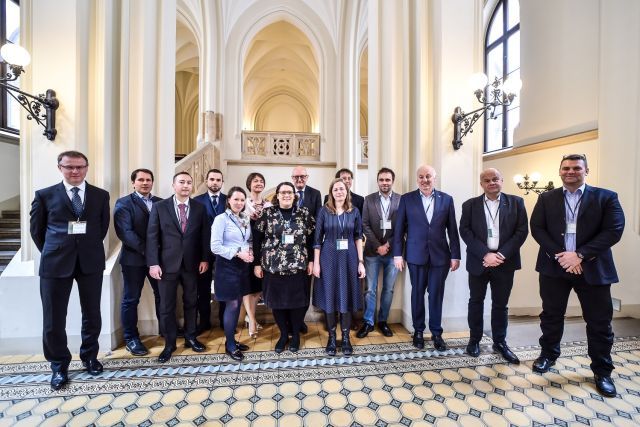 Otwarcie Centrów Dioscuri na Uniwersytecie Jagiellońskim, fot. Adam Koprowski, UJ
New Dioscuri Centres opened their doors in Kraków. Three Polish researchers working in Germany, Switzerland, and the US, were able to return to Poland thanks to Polish-German fund awarded under the prestigious Dioscuri programme implemented by the German Max Planck Society and the NCN. Five Dioscuri Centres were previously launched in PAS institutes in Warsaw. Each will receive a total of 1.5. million euro in funding over five years.
Otwarcie Centrów Dioscuri na Uniwersytecie Jagiellońskim, fot. Adam Koprowski, UJ
New Dioscuri Centres opened their doors in Kraków. Three Polish researchers working in Germany, Switzerland, and the US, were able to return to Poland thanks to Polish-German fund awarded under the prestigious Dioscuri programme implemented by the German Max Planck Society and the NCN. Five Dioscuri Centres were previously launched in PAS institutes in Warsaw. Each will receive a total of 1.5. million euro in funding over five years.
We published the results of the 4th PRELUDIUM BIS call. PhD students won a total of 58 grants to fund PhD scholarships, research projects and international fellowships.
A record number of Polish scientists also won grants in a call announced by M-ERA.NET 3. Ten research teams from Polish host institutions will work on research projects in materials science and engineering.
Also in March, the NCN Council welcomed a new member: Prof. Dr hab. Tomasz Dietl, a physicist specialising in low-temperature physics, semiconductors, spintronics and condensed matter physics.
The NCN Council updated its project funding rules and regulations in an attempt to halt or slow down the decrease in the success rate of NCN calls, caused by insufficient state funding, which had failed to meet the needs and expectations of the Polish research community. We had already been signalling the urgent need for changes to address the NCN’s low budget and the declining success rate in calls concluded in 2022 and early 2023. A success rate of less than 20% means that funding may be denied to excellent proposals that fully deserve it in the eyes of peer reviewers. The appeals of the NCN Director and Council to state authorities to increase NCN funding to match the demand had fallen on deaf ears, and the NCN Council was compelled to limit the total number of projects that could be submitted for evaluation at the NCN by a single researcher to just two. These limits will unfortunately need to stay in force until the financial situation improves.
In March, we organised the first meeting of EOSC Poland, the national agency of the European Open Science Cloud network. The mission of EOSC is to grow the research community of Europe in keeping with the ideas of open science and provide cloud-based solutions for the storage, management, analysis and re-use of research data, tools and services to enable researchers to conduct more effective research. The EOSC Poland network is coordinated by the National Science Centre.
APRIL
We published the final results of the ARTIQ call organised by the National Science Centre in cooperation with the National Foundation for Research and Development. A new Centre of Excellence in the field of artificial intelligence will open at the AGH University of Science and Technology in Kraków under the leadership of Ayan Seal from India. The mission of the call was to fund projects that could contribute to increasing the Polish potential in AI science and R&D.
As the coordinator of EOSC Poland, we launched a series of webinars focused on open research data. The programme kicked off with a training course on open research data in NCN policy and practice, followed by webinars devoted to the use of data management plans in NCN projects, and research data management practices in different disciplines, such as linguistics, social communication and media science, social sciences, medical sciences, pharmaceutics, health sciences, Earth sciences and environmental sciences.
MAY
 In May, the chairs of international peer review panels at the NCN issued an urgent appeal to the Minister of Education and Science to increase NCN funding. A similar petition had already been issued by the presidential Council for Higher Education, Science and Innovation.
In May, the chairs of international peer review panels at the NCN issued an urgent appeal to the Minister of Education and Science to increase NCN funding. A similar petition had already been issued by the presidential Council for Higher Education, Science and Innovation.
We published the results of OPUS 24 and SONATA 18, awarding nearly 520 million zlotys to basic research projects hosted by Polish research institutions.
The third iteration of POLONEZ BIS concluded in May. Funding was awarded to 47 projects with a total budget of 48.1 million zlotys, proposed by researchers from all over the world who will now relocate to Poland to conduct research, complete fellowships at non-academic institutions and attend soft skills training courses.
We published the first results of MINIATURA 7. The main goal of MINIATURA is to provide financial support to research tasks aimed at preparing future research projects that might be submitted under NCN calls or other domestic and international calls for proposals. Between May and November, we regularly published new winner lists. In total, 621 proposals were selected for funding – 243 in Life Sciences, 205 in Physical Sciences and Engineering and 173 in Humanities and Social Sciences; their total budget exceeded 24 million zlotys.
In May, we also organised the 9th NCN Days. At the invitation of the Wrocław University of Technology and in cooperation with the College of Vice-Rectors for Science of Wrocław and Opole Universities (KRUWiO), we travelled to the capital of Lower Silesia to present the NCN and its mission to regional researchers and invite them to share their experiences and opinions on the NCN portfolio.
JUNE
Prof. Robert Hasterok, President of the NCN Council, and Prof. Zbigniew Błocki, interim NCN director, issued an appeal to Prof. Przemysław Czarnek, the Minister of Education and Science to increase the NCN budget. “So few grants are awarded and salaries are so low that there is a serious risk that the most talented researchers will begin to leave Poland or abandon research altogether”, they wrote in their letter.
In an interview published by Wyborcza.biz, Prof. Zbigniew Błocki said: “The budget of the NCN should be doubled, up to the level of c. 3 billion zlotys. This would allow us to fund 25-30% of projects, which is the optimal proportion if we look at other countries.”
In June, we announced the first round of results of the OPUS 24+LAP/Weave call for proposals prepared in cooperation with Luxembourg. More winners were announced over time as partner agencies formally approved the results of NCN’s peer review of Polish-Austrian, Polish-Flemish (Belgian), Polish-Czech, Polish-Swiss, Polish-German and Polish-Slovenian bilateral projects and Polish-Czech-Austrian, Polish-German-Austrian, Polish-Slovenian-Austrian and Polish-Slovenian-Czech trilateral projects A total of 46 Polish teams won nearly 72 million zlotys. The NCN was the Lead Agency responsible for the entire merit-based review process, while our partner agencies formally approved its results.
A special issue of “Science” published an article on the impact of light pollution on public health, with Dr inż. Karolina Zielińska-Dąbkowska from the Gdańsk University of Technology as its first and corresponding author. The article was written within the framework of a MINIATURA 4 grant.
In June, we organised the second POLONEZ BIS kickoff meeting. Our Kraków offices welcomed the PIs (and mentors) who started out on their POLONEZ BIS projects in the spring or were scheduled to begin in July 2023.
On 22 June we organised the EOSC Day Poland in Poznań under the slogan “Open Science Becomes Reality”, in cooperation with the Poznań Supercomputer and Networking Centre, the Adam Mickiewicz University and the Poznań University of Technology. The purpose of the event was to present the best EOSC practices and solutions for research data management.
JULY
 “Nature” published an article focused on the first Wildland-Urban Interface (WUI) map project. “I was able to be part of this research thanks to the NCN”, says Dr Dominik Kaim, a geographer from the Jagiellonian University, who is listed as one of its authors.
“Nature” published an article focused on the first Wildland-Urban Interface (WUI) map project. “I was able to be part of this research thanks to the NCN”, says Dr Dominik Kaim, a geographer from the Jagiellonian University, who is listed as one of its authors.
The QuantERA network of quantum technology research-funding agencies published a series of interviews with women leaders of international research consortia. One of the goals of the network, which is coordinated by the NCN, is to foster a more balanced participation of men and women in quantum research.
AUGUST
We announced the prestigious IMPRESS-U call, whose aim is to support the research potential of Ukraine and open up new opportunities for Polish and Ukrainian researchers to collaborate with scientists from the US and the Baltic states. The call is organised by institutions from six countries: Poland, Lithuania, Latvia, Estonia, Ukraine and the United States. Projects will undergo peer review at the National Science Foundation, which initiated the call. Proposals will be accepted until the end of 2025 or until the resources run out. The total budget available to Polish teams is 10 million zlotys.
We concluded the SONATINA 7 call, awarding more than 32 million zlotys to two- and three-year projects proposed by 38 young researchers.
In August, the Ministry of Education and Science positively assessed the fulfilment of its mission by the NCN and approved the 2022 NCN Report. The document had previously been positively reviewed by the Main Council for Science and Higher Education and the Scientific Policy Committee. Prof. Przemysław Czarnek addressed the report in a statement of 24 August, emphasising that the NCN had been successful at its mission.
SEPTEMBER
 The Polish research community, alarmed by the announcements of the Minister of Education and Science Przemysław Czarnek that the National Science Centre might be reformed or even shut down, appealed to him to preserve the independence of the NCN and increase its budget to reach a level that would allow funding for top scientific research and constant growth of science in Poland. Many individuals and groups also spoke out in defence of the NCN in the following months, including Science Europe and the individual winners of ERC grants, awards and scholarships of the Foundation for Polish Science, “Polityka” awards and scholarships, MeiN scholarships, and the L’Oreal-UNESCO For Women in Science programme.
The Polish research community, alarmed by the announcements of the Minister of Education and Science Przemysław Czarnek that the National Science Centre might be reformed or even shut down, appealed to him to preserve the independence of the NCN and increase its budget to reach a level that would allow funding for top scientific research and constant growth of science in Poland. Many individuals and groups also spoke out in defence of the NCN in the following months, including Science Europe and the individual winners of ERC grants, awards and scholarships of the Foundation for Polish Science, “Polityka” awards and scholarships, MeiN scholarships, and the L’Oreal-UNESCO For Women in Science programme.
Prof. Zbigniew Błocki talked to Forum Akademickie and Gazeta Wyborcza about the problems caused by the NCN’s frozen budget, the current research policy and the functioning of the NCN. The interim director also joined an expert panel on research policy challenges and possible changes in Polish research organised by the Polish Academy of Sciences.
OCTOBER
After the parliamentary elections, the academic community hastened to suggest a list of the most pressing issues for the new government to put on its agenda. “I am assuming that the new government will radically rewrite the budget for next year. I can’t even imagine it won’t start by increasing the NCN subsidy”, Prof. Zbigniew Błocki, interim NCN Director, said in an interview published by “Gazeta Wyborcza”. He also discussed the situation of the NCN in recent years and the future of Polish science and research institutions after the elections in an episode of the NCN podcast.
On 31 October, Prof. Krzysztof Jóźwiak finally received approval for his appointment as the NCN Director The new director is very familiar with the NCN as he previously served as an NCN Council member.
“I am determined to do my best to push for an increase in the NCN grant-in-aid. I believe it to be the most urgent task right now and I hope the Ministry of Education and Science will understand that concern. Without decent funding for quality-oriented science and education, we will not be able to create a modern knowledge-based economy in Poland”, the new NCN Director stressed. He also discussed the priorities for the coming months and the broader vision for the future of the NCN in an interview published by “Forum Akademickie” soon after his appointment.
Prof. Jóźwiak had spent 8 months waiting for his appointment. According to plan, he was supposed to take over from Prof. Błocki at the beginning of March. An open competition to fill the position had been held several months earlier and the NCN Council accepted his nomination in the middle of February. However, Prof. Jóźwiak still had to wait for a ministerial nomination from Prof. Przemysław Czarnek. In accordance with the Act on the NCN, until that time, Prof. Zbigniew Błocki remained in office as its interim director.
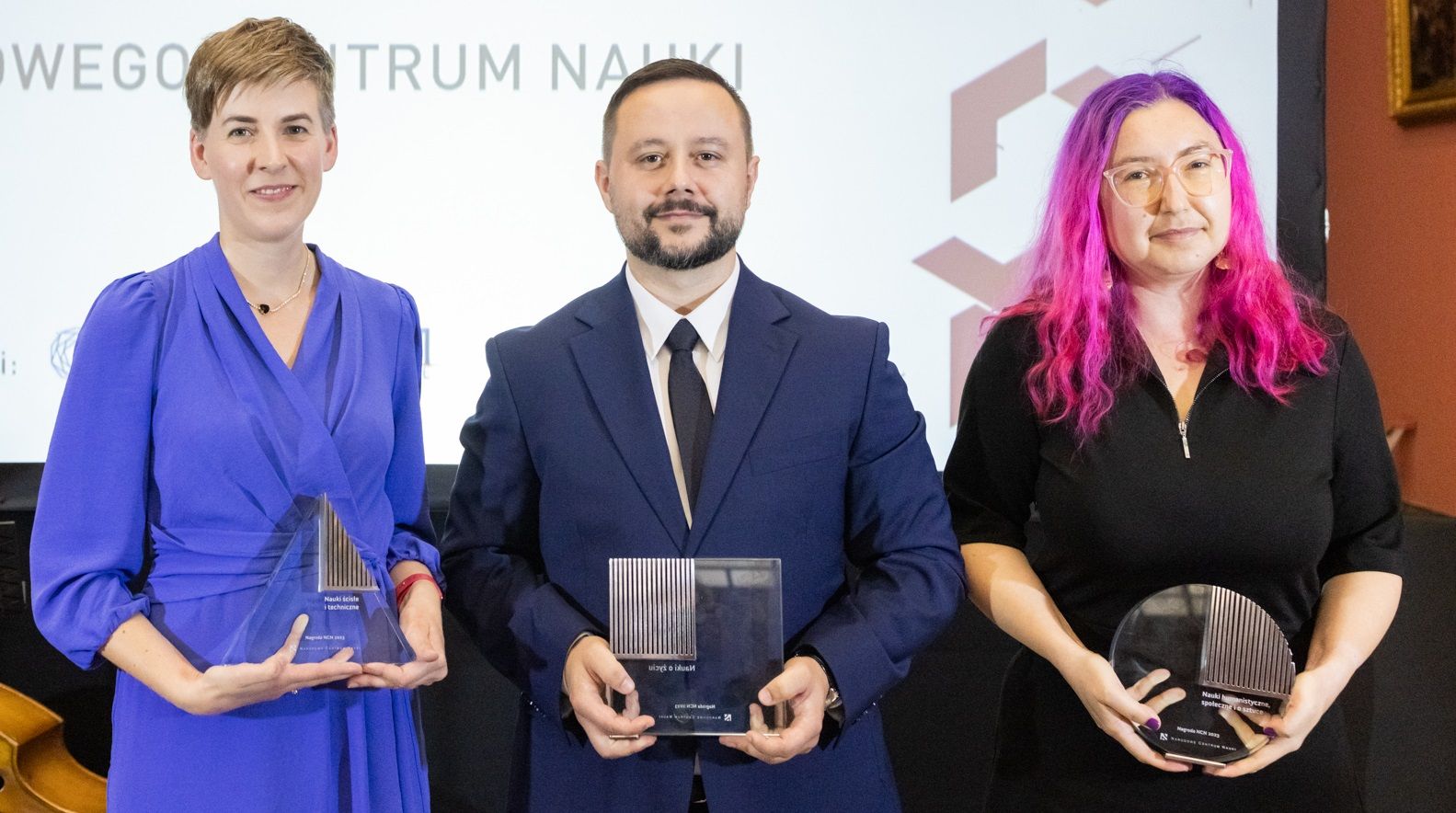 prof. Katharina Boguslawski, prof. Łukasz Opaliński, dr Karolina Ćwiek-Rogalska, laureaci Nagrody NCN 2023
In October, we announced the names of the best young researchers of 2023. Prof. Katharina Boguslawski from the Nicolaus Copernicus University in Toruń, Dr Karolina Ćwiek-Rogalska from the Institute of Slavic Studies, Polish Academy of Science and Prof. Łukasz Opaliński from the University of Wrocław won the 2023 NCN Award. The awards ceremony was held at the Gallery of 19th-Century Polish Art in the Sukiennice. This prestigious distinction was discussed in an episode of the NCN podcast with the winner of the 2023 NCN Award for Arts, Humanities and Social Sciences.
prof. Katharina Boguslawski, prof. Łukasz Opaliński, dr Karolina Ćwiek-Rogalska, laureaci Nagrody NCN 2023
In October, we announced the names of the best young researchers of 2023. Prof. Katharina Boguslawski from the Nicolaus Copernicus University in Toruń, Dr Karolina Ćwiek-Rogalska from the Institute of Slavic Studies, Polish Academy of Science and Prof. Łukasz Opaliński from the University of Wrocław won the 2023 NCN Award. The awards ceremony was held at the Gallery of 19th-Century Polish Art in the Sukiennice. This prestigious distinction was discussed in an episode of the NCN podcast with the winner of the 2023 NCN Award for Arts, Humanities and Social Sciences.
CHIST-ERA announced the results of two calls: Open & Re-usable Research Data & Software (ORD), in which 5 out of 9 awarded projects included Polish researchers, and Call 2023, in which 12 international projects were selected, three of which will involve Polish teams. Polish researchers will complete research projects with a total budget of more than 7.5 million zlotys.
We funded four additional projects under POLONEZ BIS, a call for foreign researchers who wish to work in Poland, with a total budget of almost 4.2. million zlotys.
We temporarily relaxed the provisions of the “NCN Policy on Open Access to Publications”. The changes were introduced in response to the appeals of the research community and recent changes in publishers’ policies. They will remain in force until 31 December 2025. More information can be found on our website.
The Navoica platform launched open online courses (MOOCs) in research data management for researchers and data stewards, designed by the NCN and commissioned by the Ministry of Education and Science within the framework of Poland’s participation in the European Open Science Cloud partnership. More information about the partnership can be found here: https://eosc.gov.pl/.
NOVEMBER
We announced the results of OPUS 25 and PRELUDIUM 22. A little over 338 million zlotys will go to 407 projects by researchers employed at Polish institutions. This is the lowest number of projects selected for funding in the entire history of the NCN. The success rate hit an all-time low of 8.06% for OPUS and 10.73% for PRELUDIUM. “The proportion of funded projects is the lowest in history. We all know what the consequences will be: faced with the instability of the research-funding system, talented Polish researchers will look for more auspicious conditions abroad”, warned Prof. Krzysztof Jóźwiak, NCN Director.
Polish researchers issued an open letter to the public authorities, requesting measures to improve the situation of Polish research, including an increase in the NCN budget. The appeal can be signed online.
November also brought the results of many international calls for proposals. We published the results of the third international SHENG call for Polish-Chinese research projects. Funding was awarded to 13 projects in Social Sciences and Physical Sciences and Engineering, with a total budget of more than 15 million. The JPI Urban Europe network announced the winners of BTC ENUTC Call 2023 on urban issues and challenges, including two international projects with Polish researchers. Three projects by Polish researchers also won funding in the JPND call for projects devoted to neurodegenerative disorders, such as Alzheimer’s and Creutzfeldt-Jakob disease. Last but not least, the JPIAMR network published the results of its call for research proposals related to antimicrobial resistance. Winners included four projects with Polish teams.
We launched a series of lectures “Science in the Centre”, organised in cooperation with the Copernicus Centre. The first lecture this year, “How Things Become Ghosts. On Displacement and the Emergence of New Cultures in Central Europe”, was delivered by Dr Karolina Ćwiek-Rogalska, winner of the 2023 NCN Award for Arts, Humanities and Social Sciences. Prof. Łukasz Opaliński, the winner for Life Sciences, talked about how naturally occurring cellular processes could be harnessed to develop innovative cancer therapies. Prof. Katharina Boguslawski, quantum physicist, who won the NCN Award for Physical Sciences and Engineering, delivered the last lecture, entitled “The Quantum Path to Chemistry”.
 EOSC Festival. The National Tripartite Event Poland
In November, our Kraków offices also hosted important international events. On 6-7 November, we held the second EOSC Festival. The National Tripartite Event Poland. The event brought together many of the stakeholders of the European Open Science Cloud (EOSC) to discuss open science and the future of the EOSC. Our guests focused on key policy and implementation issues and the admission of new members, including developing countries, to the EOSC. On 6 November, we also organised a conference to promote the Basic Research programme, financed under the third edition of the EEA and Norway Funds. This year’s conference was focused on Humanities and Social Sciences. Last but not least, at the end of November, we hosted a group of more than 100 researchers at the third and last POLONEZ BIS kick-off meeting.
EOSC Festival. The National Tripartite Event Poland
In November, our Kraków offices also hosted important international events. On 6-7 November, we held the second EOSC Festival. The National Tripartite Event Poland. The event brought together many of the stakeholders of the European Open Science Cloud (EOSC) to discuss open science and the future of the EOSC. Our guests focused on key policy and implementation issues and the admission of new members, including developing countries, to the EOSC. On 6 November, we also organised a conference to promote the Basic Research programme, financed under the third edition of the EEA and Norway Funds. This year’s conference was focused on Humanities and Social Sciences. Last but not least, at the end of November, we hosted a group of more than 100 researchers at the third and last POLONEZ BIS kick-off meeting.
QuantERA published the second edition of its report on ”Quantum Technologies Public Policies in Europe”, presenting the different national quantum technology policies adopted across Europe.
DECEMBER
The NCN Director and the President of the NCN Council issued a letter to the new Minister of Science, Dariusz Wieczorek. “We expect a new opening and hope that the new authorities will soon take quick and effective measures to support the National Science Centre in its mission to boost the quality and effectiveness of Polish research and improve the standing of Polish science in the world”, they wrote.
The two professors said they hoped to be able to meet the new minister soon and discuss their “comprehensive, constructive and creative cooperation for the sake of science”. Prof. Krzysztof Jóźwiak, NCN Director, also talked about the need for a new opening in our relationship with the ministry of science, the benefits of basic research funding, and the top challenges faced by the NCN in episode 10 of the NCN podcast.
In the last days of December, the Sejm was working on the draft 2024 budget bill. During a parliamentary debate on 21 December, Andrzej Domański, Minister of Finance, declared that the new state budget will include resources for the “important purpose” of increasing the budget of the National Science Centre.
“The core of our mission is to fund top basic research. This is so little and yet so much… It would be good if politicians finally recognised the importance of the NCN in the research-funding system”, said Prof. Robert Hasterok, President of the NCN Council in an interview published by “Forum Akademickie”. The scientist took stock of the last 12 months and talked about the future plans of the Council.
The Polish research community also spoke up about the NCN budget. “The 2024 budget bill amendment announced by the new government and parliament is the last chance to prevent a serious collapse of the higher education and research system in Poland with greater spending, especially on the NCN”, researchers wrote in an open letter to public authorities. The signatories to the appeal stress that the issues of science and higher education are often side-lined in public debate and political party declarations, while “research challenges and the material situation of researchers are becoming increasingly dramatic”. The appeal can still be signed online. Until know, it has been supported by nearly 3,200.
The situation of Polish science was also addressed by a group of winners of scholarships from the Minister of Education and Science (MEiN) for outstanding young researchers, who issued an open letter to the Prime Minister and the Minister of Science and Higher Education, in which they called for an increase in spending on Polish research and a revision of available research funding channels. The letter was signed by 111 researchers working at Polish institutions.
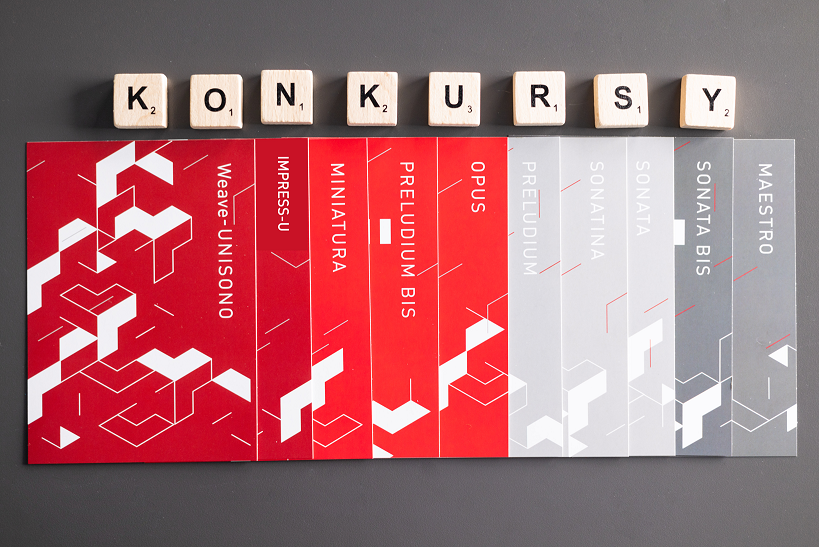 As always in December, we published the 2024 call timeline. We will be announcing two iterations of OPUS, including one under the Lead Agency Procedure in the fall, as well as one each for PRELUDIUM, SONATINA, SONATA, SONATA BIS and MAESTRO. We will launch a new MINIATURA call and continue with IMPRESS-U and Weave-UNISONO. The timeline does not include multilateral calls organised by international networks that the NCN belongs to.
As always in December, we published the 2024 call timeline. We will be announcing two iterations of OPUS, including one under the Lead Agency Procedure in the fall, as well as one each for PRELUDIUM, SONATINA, SONATA, SONATA BIS and MAESTRO. We will launch a new MINIATURA call and continue with IMPRESS-U and Weave-UNISONO. The timeline does not include multilateral calls organised by international networks that the NCN belongs to.
We published the results of the QuantERA call for international projects in quantum technology research. Eight out of the 24 successful projects include Polish teams. Polish researchers will study the quantum nature of the environment, quantum simulators, quantum cryptography and the potential of computing resources in quantum computers.
Researchers from Białowieża, Łódź, Kraków, Sopot, and Warsaw are among the winners of BiodivMon, organised by the Biodiversa+ European Biodiversity Partnership. They will conduct research on systems for biodiversity monitoring and ecosystem change. The committee selected 33 projects, 6 of which, with a total budget of nearly 6.8 million euro, involve Polish teams.
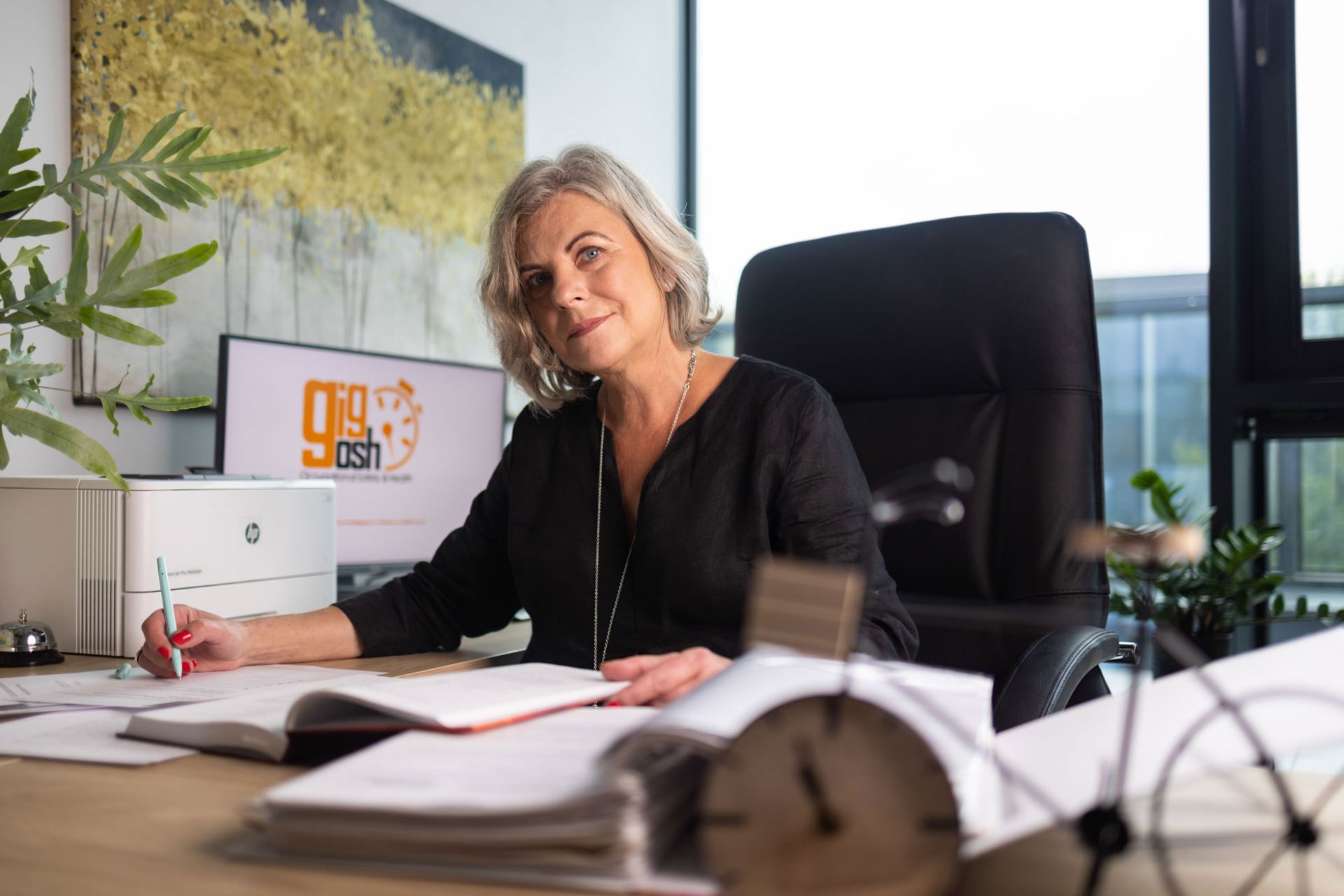 Prof. Dorota Merecz-Kot, photo by Michał Łepecki
The goal of this project is to investigate how platform work is organised in different EU countries. What are the OHS risks faced by platform workers? How does the platform work environment affect their well-being (mental and physical health)? We want to collect quantitative and qualitative data in order to analyse the similarities and differences between different countries and create a European map of trends in the sharing economy. At the core of the project is a prospective study of platform workers in Poland, Sweden, Spain, Belgium, Denmark, Finland and Great Britain, made up of interviews and online questionnaires.
Prof. Dorota Merecz-Kot, photo by Michał Łepecki
The goal of this project is to investigate how platform work is organised in different EU countries. What are the OHS risks faced by platform workers? How does the platform work environment affect their well-being (mental and physical health)? We want to collect quantitative and qualitative data in order to analyse the similarities and differences between different countries and create a European map of trends in the sharing economy. At the core of the project is a prospective study of platform workers in Poland, Sweden, Spain, Belgium, Denmark, Finland and Great Britain, made up of interviews and online questionnaires.

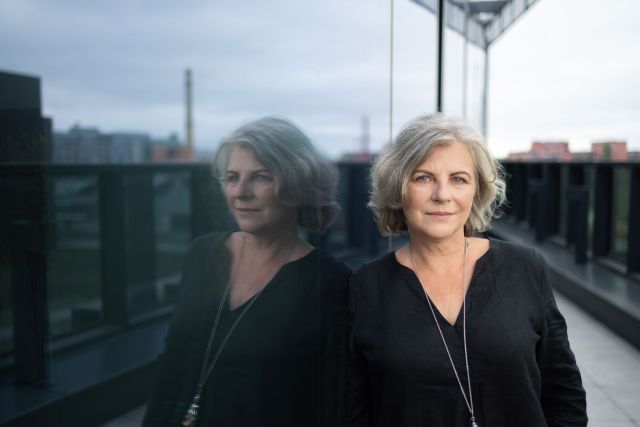

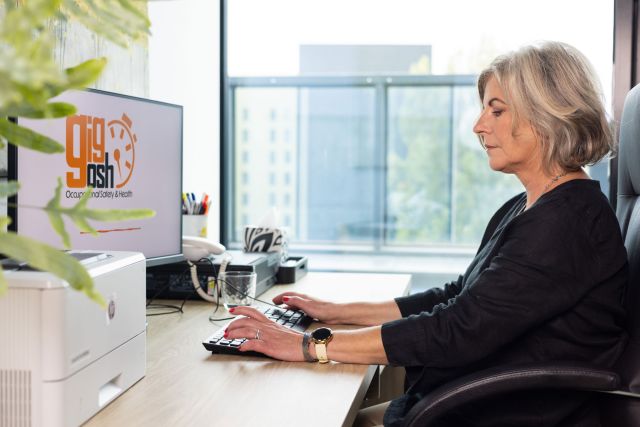
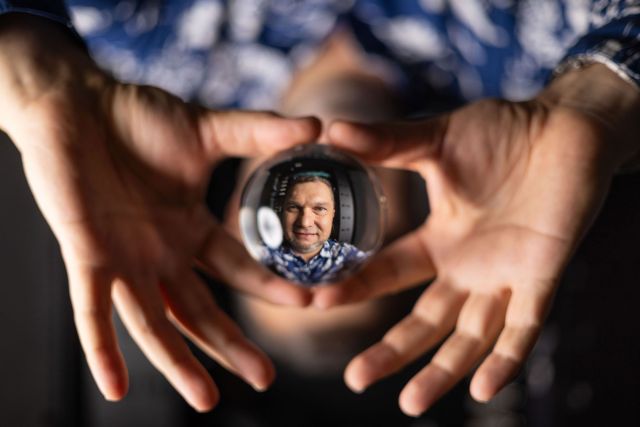
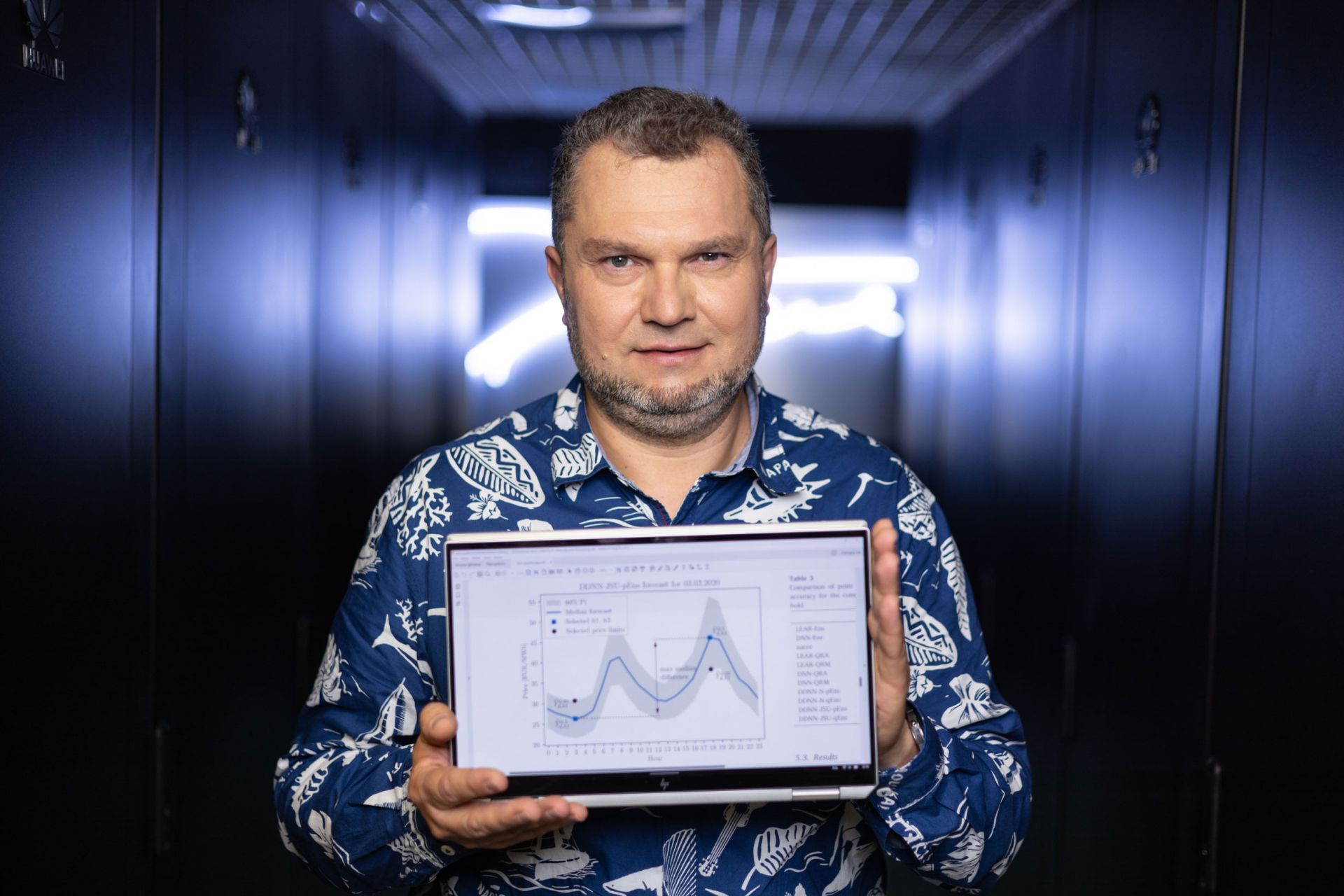

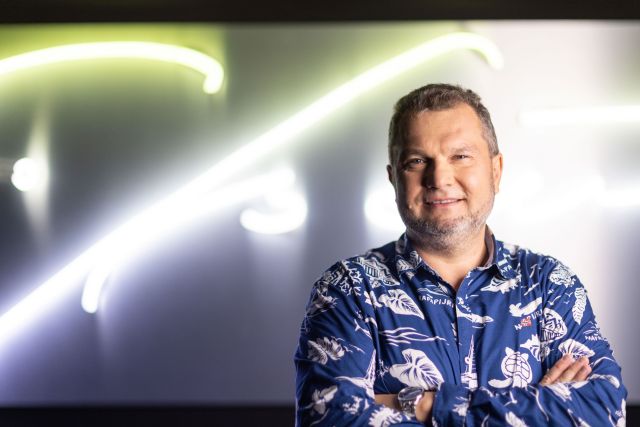
 Who may apply for NCN funding?
Who may apply for NCN funding? Who may act as a principal investigator?
Who may act as a principal investigator? What are the subjects covered by the call?
What are the subjects covered by the call? What is the project duration period?
What is the project duration period? What are the positions for members of the research team?
What are the positions for members of the research team? How should the project budget be planned?
How should the project budget be planned? Open Access publication of research results
Open Access publication of research results Can proposals in this call include application for state aid?
Can proposals in this call include application for state aid? What is the proposal evaluation procedure?
What is the proposal evaluation procedure? Who performs the merit-based evaluation of proposals?
Who performs the merit-based evaluation of proposals? When and how will the results be announced?
When and how will the results be announced? Where can additional information be found?
Where can additional information be found? Useful information
Useful information








